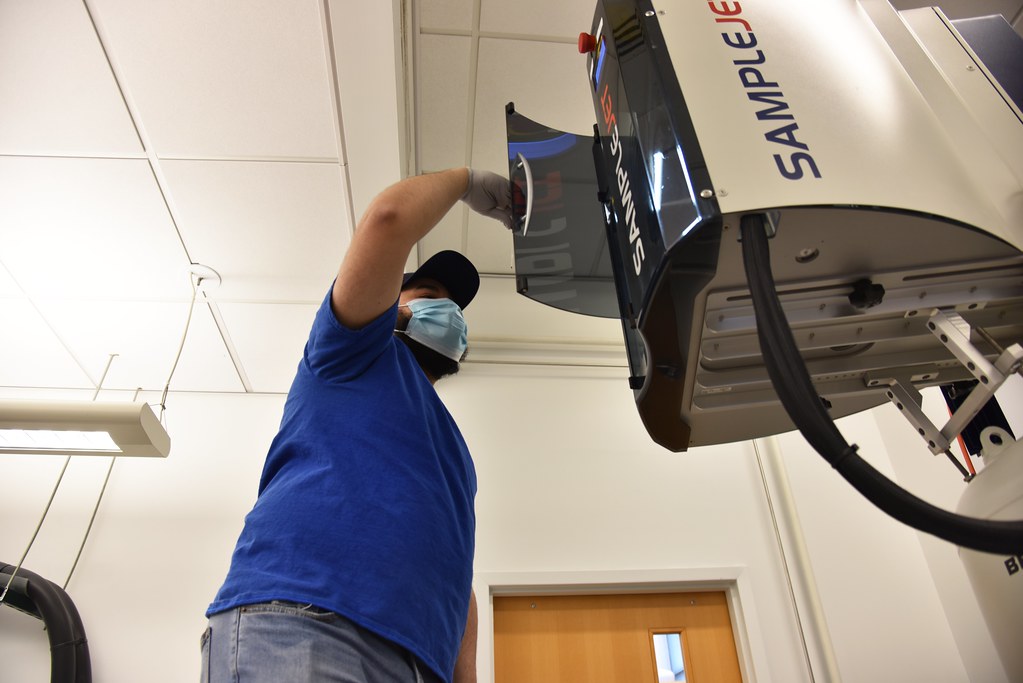Metabolite screening looks to better understand cancer

By Lauren Hines | Bond LSC
Doctors take blood or urine samples to see what’s going on in the body of a patient, and that’s not all that different from what metabolomics scientists do when looking at metabolites.
“[The doctor] may profile 20 or 30 compounds to try to understand what’s going on with your physical health and well-being,” said Lloyd W. Sumner, director of the MU Metabolomics Center. “Well, that’s what we do but on a larger scale. Instead of analyzing 20 or 30, we’re analyzing hundreds to thousands of individual chemicals, specifically metabolites, that are in your body. This provides a high-resolution biochemical phenotype for our subjects.”
Even though metabolites are relatively small molecules compared to DNA and proteins, they play a big role in every organism.
Metabolites serve as energy sources and building blocks that are the end products of our cellular processes. These molecules can tell researchers in the Metabolomics Center at Bond Life Sciences Center a lot about what goes on in the bodies of plants and animals and offers potentially great opportunities in precision health.
One specific example happened in July 2020 when the Metabolomics Center and the Rat Resource and Research Center highlighted what looking at metabolites can do in a new publication.
“We were able to show from the metabolic profiles that we could predict [colon] cancer or the tumor load [in rats] well in advance,” Sumner said. “Thus, metabolomics is a very powerful diagnostic and prognostic tool that we were just beginning to realize, and we would ultimately like to move metabolomics into the clinical medical arena as well and use it in personalized medicine.”
However, researchers were asking a different question at first.
“We’ve always thought about the gut microbiome,” said James Amos-Landgraf, associate professor of veterinary pathobiology at the Rat Resource Center. “What is the mechanism behind [the bacteria in the gut] influencing cancer development? And one of the possibilities certainly could be the metabolites that are being produced by those bacteria.”
Researchers took two genetically identical sets of rats, which were genetically susceptible to cancer, and introduced different microbiomes in each group. Then, they analyzed the metabolites in the rat feces and blood.
“What was interesting to us was that at one month of age, there were metabolites that could predict at four months whether or not they had more tumors or less tumors,” Amos-Landgraf said. “That was somewhat independent of the microbiome, so it certainly correlated slightly with what microbiome was there, but it was more about what those bacteria were actually producing.”
Now, researchers have to identify the metabolites in the profile to better understand the biochemistry and mechanism of cancer proliferation. However, only a few percent of metabolites have been identified to date. The Metabolomics Center continuous to expand its efforts in metabolite identification by measuring the size, charge and structure of these molecules.
“Metabolomics is really crucial to understanding the role of the gut microbiome,” Amos-Landgraf said. “Understanding both what the gut is producing and how our body responds to that is going to be crucial. So, moving forward that’s the direction we’re taking.”
According to the Centers for Disease Control and Prevention, cases of colon cancer have decreased in older populations due to screenings. Those screenings allow doctors to remove benign tumors before they spread. Additional diagnostics can potentially further decrease cases.
Researchers like Amos-Landgraf and Sumner see the metabolites that were present in the less susceptible animals as acting as a potential preventative. While very long down the road, the metabolites could be used as a screening technique to predict cancer in people.
“Cancer is kind of a flagship focal area for me because it’s a very metabolically dysregulated disease,” Sumner said. “Trying to understand that process will hopefully lead to new information and better health overall.”
While the paper has not been peer-reviewed yet, readers can find out more about this study in Integrated Metabolome and Transcriptome Analyses Provide Insight into Colon Cancer Development by the Gut Microbiota. The work stemmed from Differential Susceptibility to Colorectal Cancer Due to Naturally Occurring Gut Microbiota, which is also available to read.

